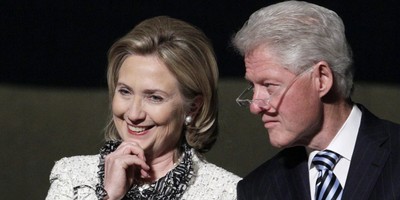With no solution in sight for Europe and new fears of a global recession, investors dumped stocks and commodities and ran to the safety of U.S. Treasurys.
Treasury yields
![]() , as a result, slipped to historic lows with the 10-year yielding 1.75 percent and the 30-year at 2.86 percent.
, as a result, slipped to historic lows with the 10-year yielding 1.75 percent and the 30-year at 2.86 percent.
The dollar was also a beneficiary of a massive fear trade that sent U.S. stocks sharply lower, on the heels of steep sell-offs in equities markets around the globe.
The worst performing stock market sectors mirrored the sell-off in global commodities markets, with materials down 4.6 percent and energy stocks down 4.1 percent.
Copper, hit by concerns of a Chinese slowdown, tumbled 7 percent to a 1-year low. Gold, usually a safety play, was sold into the maelstrom as investors raised cash. The euro [EUR=X 1.3455  -0.0122 (-0.9%)
-0.0122 (-0.9%) ![]() ] , broke below 1.35, a recent bottom of its range. It was trading in the 1.346 area, an eight-month low against the dollar. The dollar index [.DXY 78.49
] , broke below 1.35, a recent bottom of its range. It was trading in the 1.346 area, an eight-month low against the dollar. The dollar index [.DXY 78.49  1.15 (+1.49%)
1.15 (+1.49%) ![]() ] was 1.4 percent higher.
] was 1.4 percent higher.
"People are finding it really isn't gold. It isn't precious metals. It's not currencies. U.S. Treasurys are where people are flocking to at a time of extreme concern about risk, and we continue to see Treasurys continue to get bid up," said Zane Brown, fixed income strategist at Lord Abbett.
The selling in risk assets picked up momentum after the Fed's
![]() statement Wednesday, in which it characterized risks to the economy as "significant" and noted that "strains in global financial markets" (or Europe) could be a catalyst. Then overnight, a preliminary China manufacturing data showed moderating growth.
statement Wednesday, in which it characterized risks to the economy as "significant" and noted that "strains in global financial markets" (or Europe) could be a catalyst. Then overnight, a preliminary China manufacturing data showed moderating growth.
Recommended
The Fed unveiled the much anticipated "Operation Twist" program in an effort to drive down rates. The program got a lukewarm reception even though the Fed surprised markets with a plan to also buy mortgage securities.
The Fed intends to swap $400 billion in shorter dated Treasurys for the same amount in the 6-year to 30-year range. For the most part, traders worry the "twist" will do little to help the struggling economy.
"The Fed will have to go on a publicity tour over the next few weeks, coming out and stating what is the metric by which they will judge this as a success or failure," said Kevin Ferry of Cronus Futures.
"The metrics we look at—the financial conditions index—it's worse today," Ferry said. Spreads on a whole range of credit market indicators widened, including investment grade corporates, emerging market sovereigns, high-yield corporates, and municipal bonds.
Brown said he does not see the U.S. falling into recession
![]() , as the markets fear.
, as the markets fear.
"The combination of consumers spending what they can, durable goods improving just at the margin, exports improving just at the margin and what the Fed does to promote lending should help us avoid a recession," he said. Brown said the Fed may spur some increase in bank lending, driving some economic activity.
"The activity on the part of the Fed is really going to make it difficult for banks to make money unless they start lending. That's what the Fed hopes will happen. Their rationale for doing this is to promote risk taking," he said.
The lack of resolution on Europe , however, remains the biggest culprit as investors worry the exposure of European banks to the sovereign crisis will kick off a global banking crisis. The EU, IMF
![]() and European Central Bank put off until October to determine what will be done about the next payment to Greece, without which it will default. Markets have been disappointed with the lack of a bigger plan of action from European leaders.
and European Central Bank put off until October to determine what will be done about the next payment to Greece, without which it will default. Markets have been disappointed with the lack of a bigger plan of action from European leaders.
"I think it's about the lack of leadership anywhere in the world. We're seriously distressed about the lack of leadership and constant squabbling in Washington," Brown said.
The animosity between political parties was once more in the headlines Thursday as the House defeated a spending billi that would keep the government running. Republican majority leader Rep. John Boehner said he expects the bill to pass and blamed Democrats.
























Join the conversation as a VIP Member